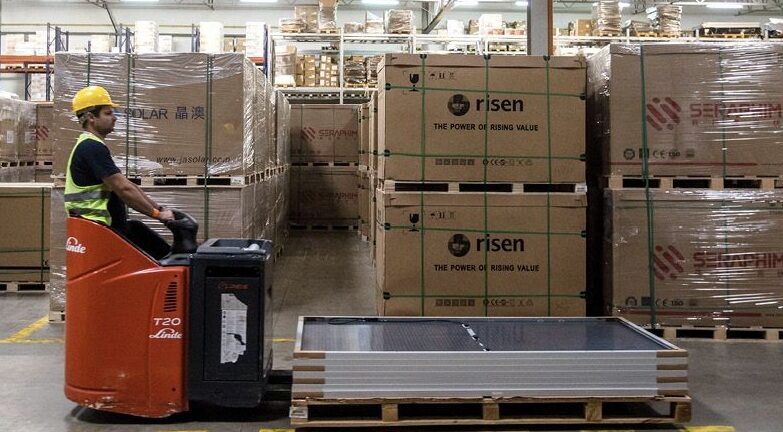From pv magazine ESS News site
Uzbekistan is in line for its first grid-scale battery energy storage project as it seeks to stabilize and strengthen its existing electricity grids and ramp up the uptake of renewable energy.
Nur Bukhara Solar PV LLC FE, a project company owned by Masdar, will deliver the 63 MW battery energy storage system alongside a 250 MW solar plant in the Alat district of the Bukhara region of south-central Uzbekistan. The project company has signed a 25-year power purchase agreement with the National Electric Grid of Uzbekistan and a 10-year operation term for the storage system.
The hybrid project has been billed as Central Asia’s first renewable energy initiative with an integrated BESS component.
Upon completion, the project is expected to generate more than 585 GWh of renewable energy per year, expanding reliable electricity access to approximately 75,000 households.
The World Bank Group, the Government of Uzbekistan, and Masdar have signed a financial package for the construction and operation of the project. It includes a $53 million loan from the International Finance Corporation (IFC) and loans for up to $106 million from the Asian Development Bank (ADB), Dutch Entrepreneurial Development Bank, and Japan International Cooperation Agency.
The package also includes granted concessional senior loans of $20 million each from the Canada-IFC Blended Climate Finance Program and ADB-managed Leading Asia’s Private Sector Infrastructure Fund, while The World Bank is providing a guarantee of up to $12 million to support the government’s payment obligations under the project.
IFC will also provide interest rate swaps for the entire debt amount, which it says will allow the project to effectively manage interest rate risks.
“Our growing partnership with Uzbekistan in renewables is bringing clean and sustainable energy to the population at competitive prices,” said Wiebke Schloemer, IFC Director for Türkiye and Central Asia. “The new solar plant with a battery energy storage system will not just boost the uptake of renewable energy in the country, but also help stabilize and strengthen existing electricity grids and aid the global fight against climate change.”
Uzbekistan is at the forefront of promoting renewable energy in the region, aiming to generate a quarter of its power from clean energy sources by 2030.
This content is protected by copyright and may not be reused. If you want to cooperate with us and would like to reuse some of our content, please contact: editors@pv-magazine.com.




By submitting this form you agree to pv magazine using your data for the purposes of publishing your comment.
Your personal data will only be disclosed or otherwise transmitted to third parties for the purposes of spam filtering or if this is necessary for technical maintenance of the website. Any other transfer to third parties will not take place unless this is justified on the basis of applicable data protection regulations or if pv magazine is legally obliged to do so.
You may revoke this consent at any time with effect for the future, in which case your personal data will be deleted immediately. Otherwise, your data will be deleted if pv magazine has processed your request or the purpose of data storage is fulfilled.
Further information on data privacy can be found in our Data Protection Policy.